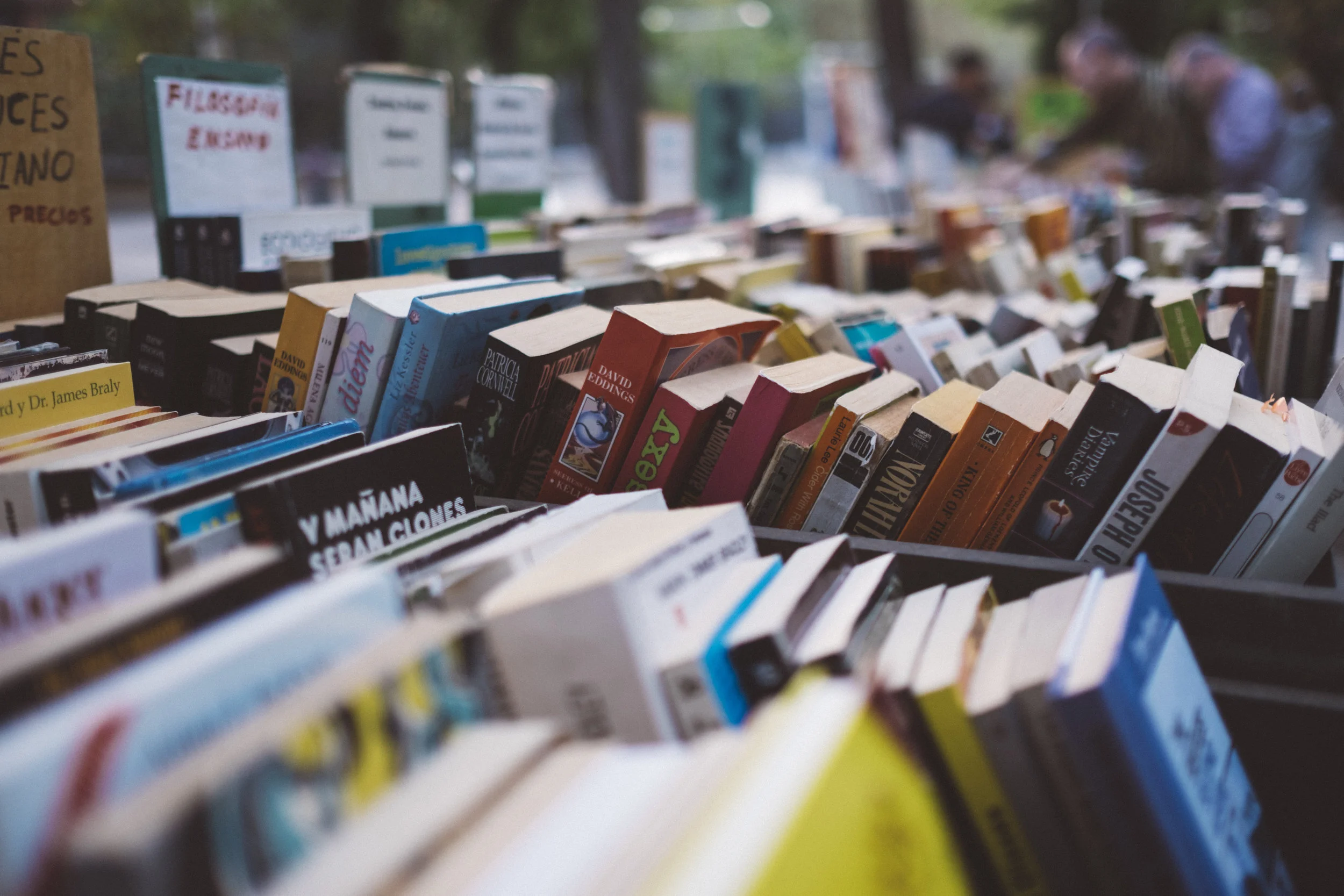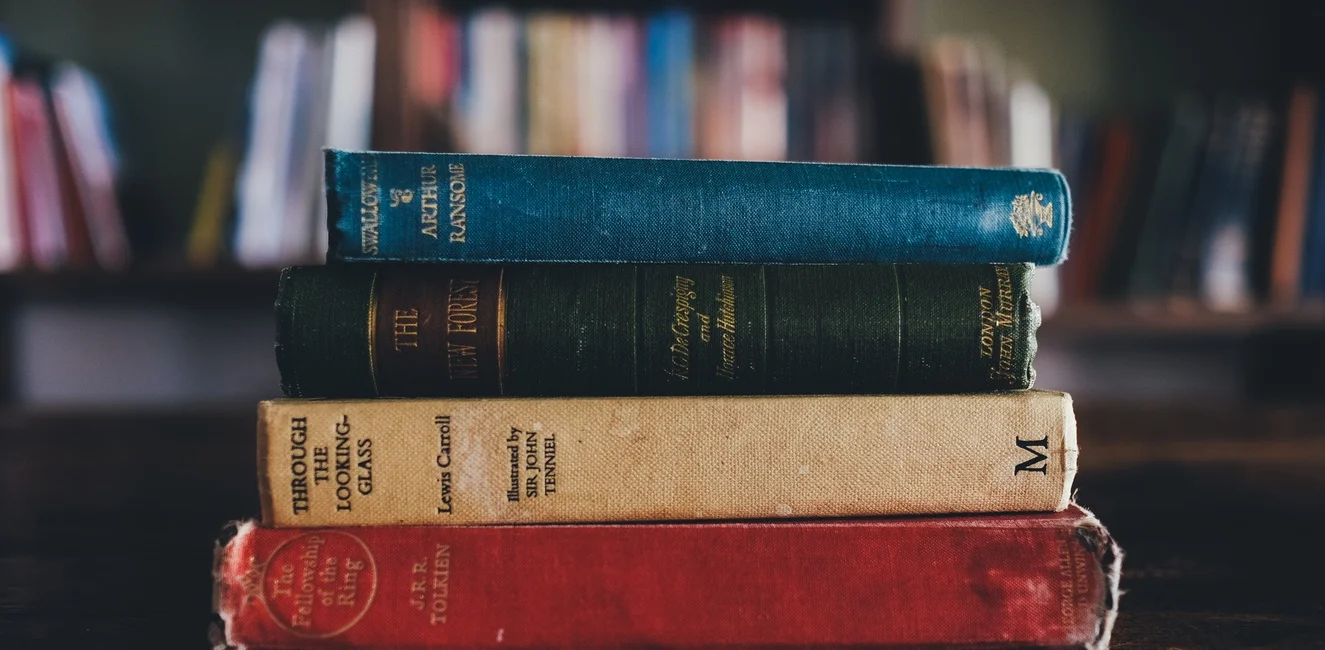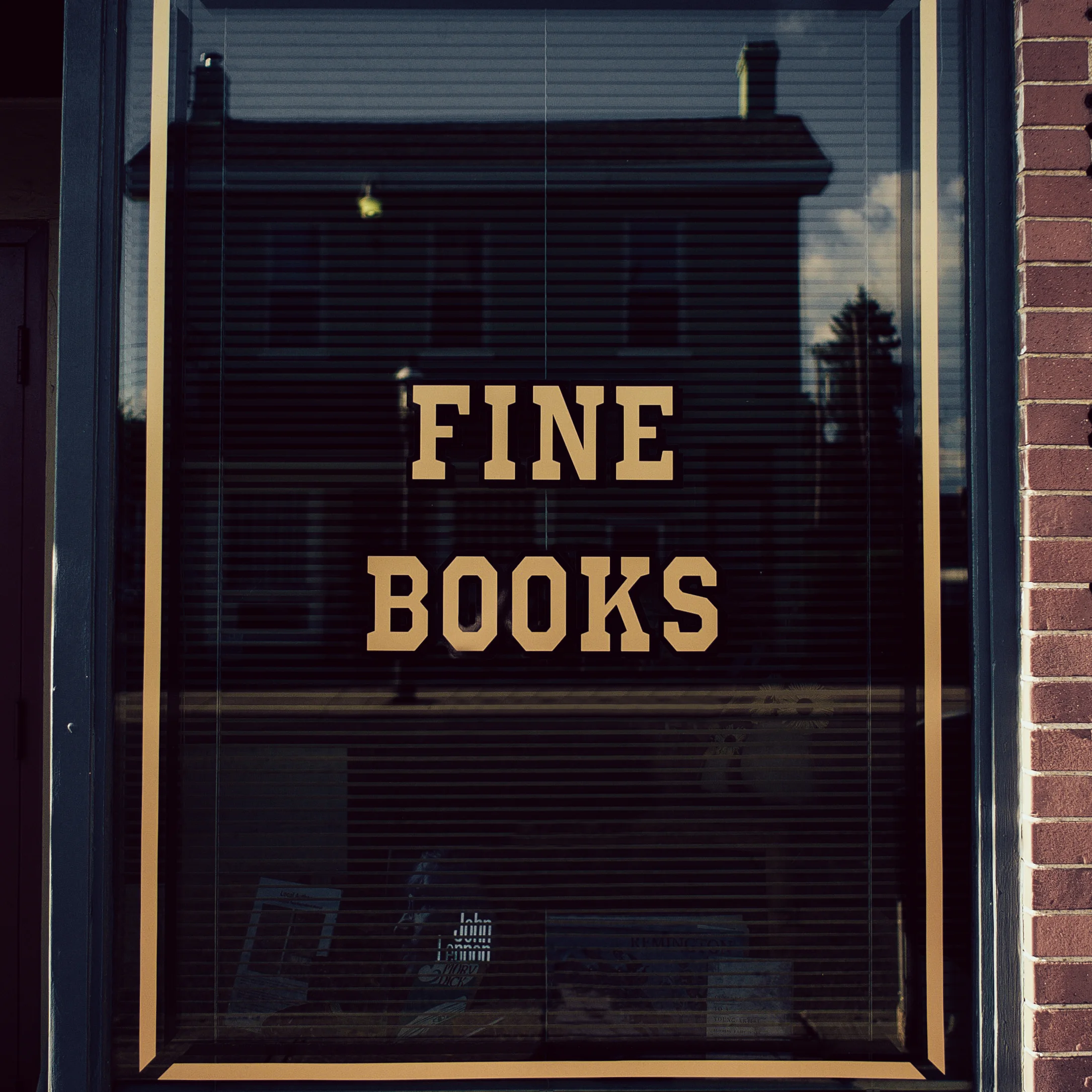The Magic of Book Festivals
In addition to the welcome warm weather, one of my favorite things about spring is that it kicks off the start of festival season. And I LOVE festivals. Especially book festivals.
Luckily for me, Columbus is home to the Ohioana Book Festival, which celebrates books by Ohio authors––whether they were born in state or have lived in state for a certain number of years. (I appreciate the willingness to accept non-native born Ohio residents because I plan to be one of the featured authors one of these days when I have a book out!)
My favorite part is the giant book fair area. It's basically like a themed Scholastic Book Fair for all ages. What's great about it isn't that you can buy books––because, let's be honest, you can do that lots of places. What's great about it is that the authors are right there, hand selling their books to you, so you can get your book signed and talk to them. I met several authors I was super impressed with, particularly Jeannie Vanasco, whose memoir The Glass Eye is out from Tin House Books, Mindy McGinnis, a YA author who wrote The Female of the Species, and Amanda Flower, who writes the Magical Bookshop mystery series (the first book is Crime and Poetry and the second is Prose and Cons) and who I credit with getting me into mysteries, which I don't normally read.
This isn't an exaggeration whatsoever, but between my partner and I brought home a stack of books a foot and a half high.
But the fun doesn't stop there. On top of the book fair, there are panel discussions with the authors. I went to several, though my favorites were "Close to Home: Biographical and Autobiographical Stories of Family" and "The Impact of Pop Culture in Our Modern World: A Conversation on How Popular Culture has Influenced Nearly Every Aspect of Twenty-First Century Life." While I should note that book festivals are not designed to be writer's conferences since the goal is just to nerd out about books and celebrating a love of books and reading, writing will obviously be discussed. So book festivals are also helpful if you're an aspiring writer or an established writer who's still working to get a book out.
I picked up several tidbits of knowledge:
- When writing nonfiction, a lot of paring should happen. You can't include everything, so edit out the unnecessary parts and everything that doesn't stick to the point of the work or further the narrative in some way. Choose the parts of yourself that are relevant to the subject or theme and diminish the parts of yourself that aren't as relevant.
- The best advice for writing memoirs: stop whining. It's unappealing.
- Often people who write memoirs are afraid of hurting someone's feelings by what they wrote, but in actuality one of the most hurtful things you can do is leave someone out of your memoir.
- When writing a memoir, you don't have to have a story based on a big event. You can write memoirs about ordinary things––the draw is the writer's voice.
- When writing about other people, they ultimately have to trust you and trust that you're representing them and the situation fairly. And it's the responsibility of the writer to take pains to do that. Nobody comes into somebody's life expecting to be in a book some day.
- It's fine to give people access to what you write about them, but make it clear that it's your story, not theirs. Ultimately, you're deciding what goes in and what doesn't.
- You have to write people's flaws to make a rich portrait of the person.
- People become critic writers because they love an art form, not because they hate it and are always looking for something negative to say. The only difference between the critic and the fan is the platform they use to articulate their thoughts––magazine vs Facebook comments; newspaper vs Reddit. You can love a medium but also hold it to a really high standard. (As a book reviewer myself, I can say that's definitely true!)
- When writing criticism or reviews, keep in mind that being in a fandom can sometimes feel like feeling along the walls of a dark room. It's the critic's job to turn on the light.
- When writing fiction, especially fiction that jumps around in time or travels between time periods, remembering the moment at hand is key. Stay in the moment with your characters or it's easy to get confused.
- Pro tip: Avoid timestamping chapters/sections beyond saying what year it is. Don't mention specific dates or days of the week because it could come back to bite you and limit what you're able to do later on in your story.
While the panels I went to focused primarily on nonfiction since that's mostly what I'm writing these days, there were also panels for mystery lovers, history buffs, poets, children's writers and illustrators and more.
And just when the day couldn't get any better, we realized the book festival was only a few blocks away from the main downtown branch of the Columbus Metro Library and they were having a massive book sale. So we added even more to our book haul for the day.
The Ohioana Book Festival is held every April, so be sure to sign up for their email list and follow them on social media if you're interested in attending the next one. Or if you're not in the area, see what book festivals are closer to you! If it's anything like this past weekend was for me, you're going to be in book nerd heaven.






